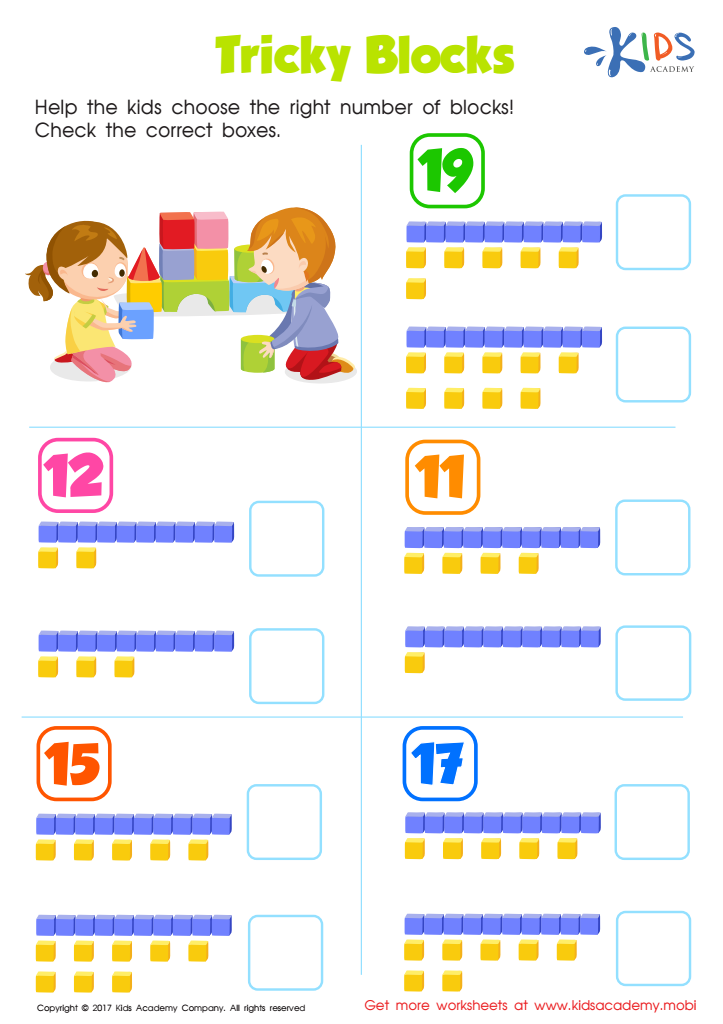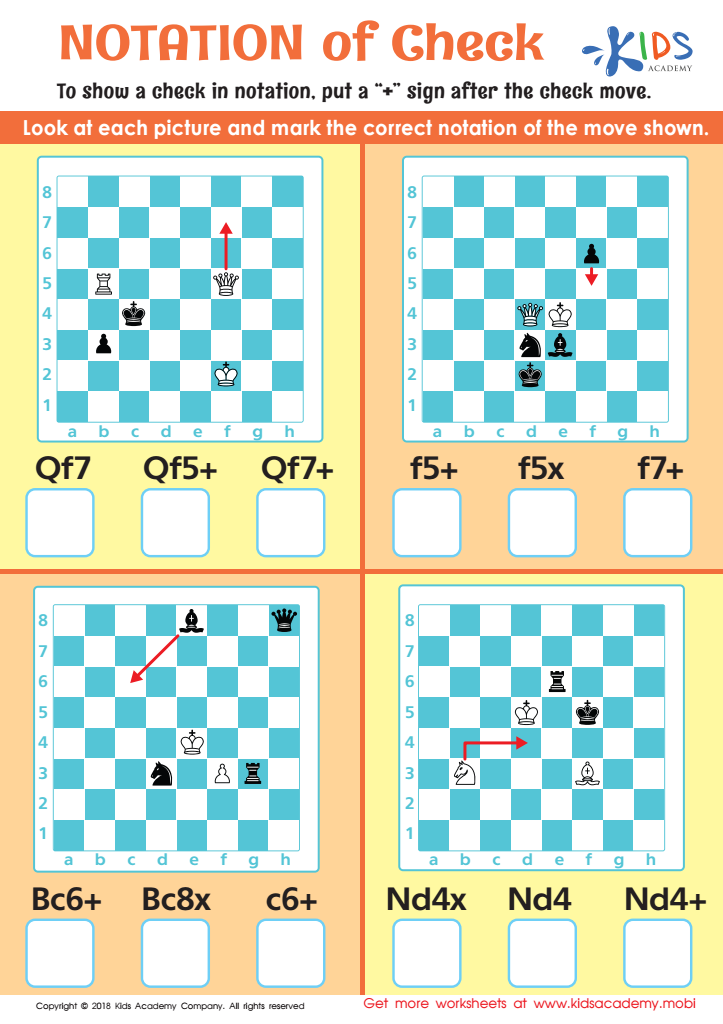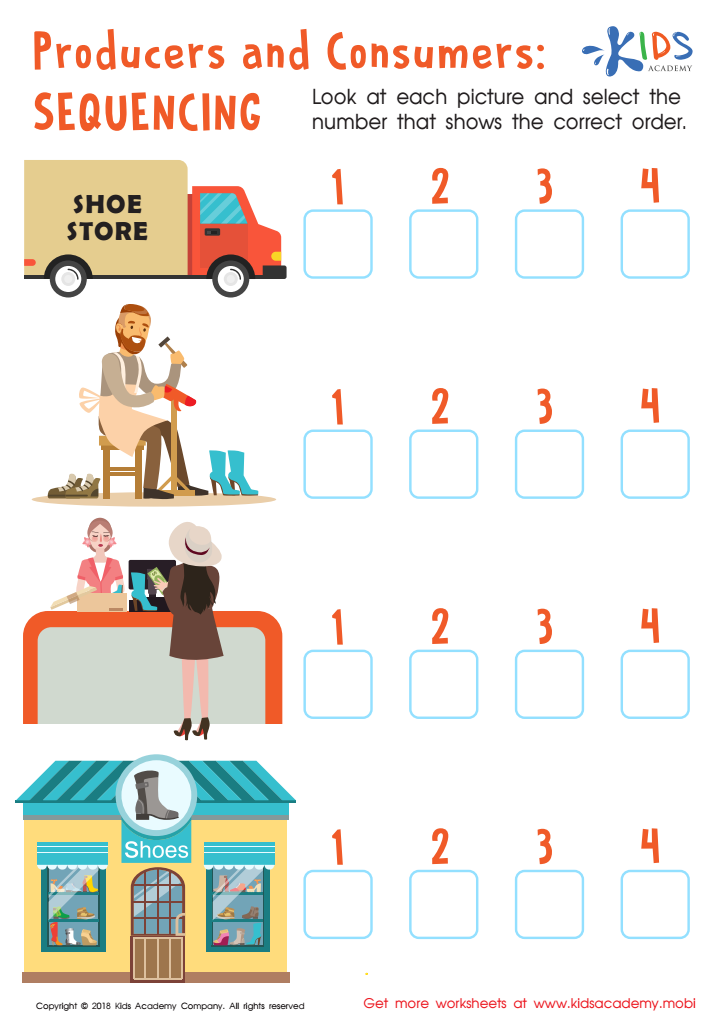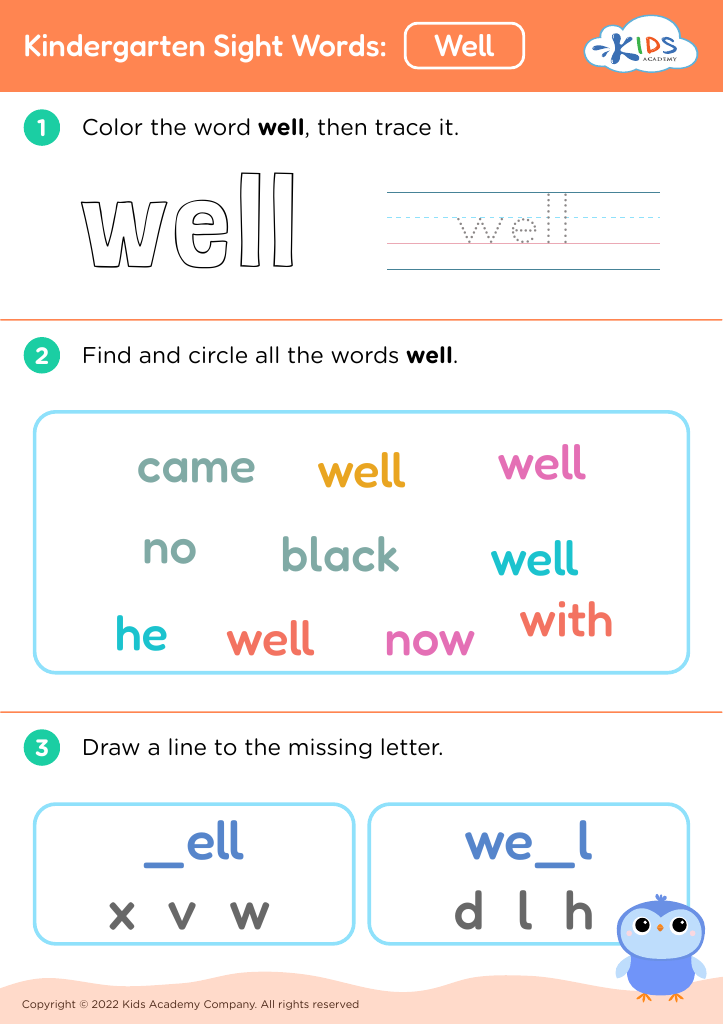Developing logical thinking Worksheets for Ages 4-6
4 filtered results
-
From - To
Welcome to our dedicated section for developing logical thinking worksheets designed specifically for children aged 4-6! Our engaging and interactive worksheets aim to strengthen young minds through fun and challenging activities. These worksheets focus on critical skills such as pattern recognition, sequencing, and problem-solving. By fostering logical reasoning early, kids can enhance their cognitive abilities and prepare for more complex concepts in the future. Our beautifully illustrated worksheets make learning enjoyable, ensuring that children remain excited and motivated. Perfect for both classroom settings and at-home practice, explore our collection today and empower your child's logical thinking skills with playful learning!


Tricky Blocks Worksheet


Notation of Check Worksheet


Producers and Consumers: Sequencing Worksheet
Developing logical thinking skills in children aged 4-6 is crucial as these foundational years set the stage for future learning and problem-solving abilities. At this age, children are naturally curious and eager to explore their environment. Fostered logical thinking helps them make sense of the world around them by identifying patterns, making connections, and drawing conclusions.
For parents and teachers, encouraging these skills can facilitate better decision-making and analytical capabilities in young learners. Engaging children in activities that promote logical thinking, such as sorting, categorizing, and problem-solving games, not only enhances cognitive development but also boosts confidence and independence.
Logical reasoning also underpins early math and literacy skills. When children can think logically, they are better equipped to tackle the complexities of addition and subtraction or understand the sequence of events in stories. Additionally, these skills contribute to social-emotional development, as they learn to reason through conflicts and understand others' perspectives.
Ultimately, investing in the logical thinking abilities of young learners cultivates a lifelong love of learning and equips them with essential life skills that will serve them well throughout their educational journey and beyond.
 Assign to My Students
Assign to My Students




















